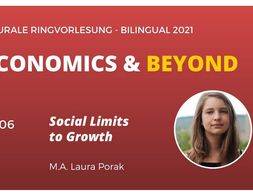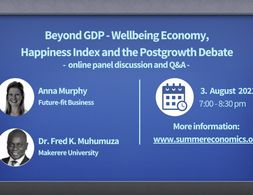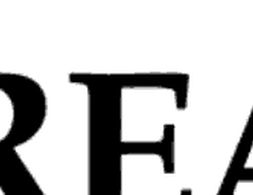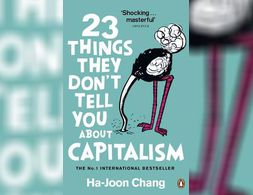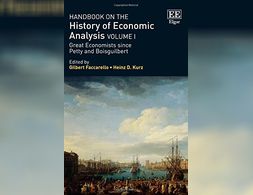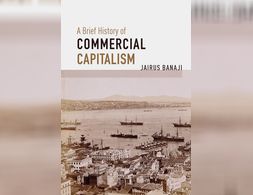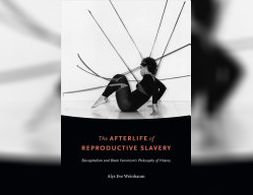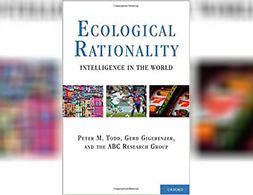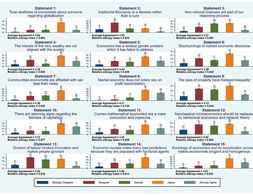✕
788 results
These notes aim to clarify some basic features and implications of gross capital flows In the context of the 2007 08 Global Financial Crisis and the 2010 12 Eurozone Crisis trade imbalances and capital flows received a lot of attention from academics policymakers and the media However there is still …
Have you ever thought about the role of civil society and the evolution of economy in one breath? This one hour long interview of Daron Acemoğlu (MIT) and Martin Wolf (Financial Times) by Rethinking Economy NL gives you much inspiration for it.
How exactly are persisting social inequalities and the operations of modern finance connected? Adam Tooze provides a detailed answer to a still relevant problem by focusing on the Great Financial Crisis and the role of the finance industry in the USA.
Many economists refer to economic growth as a cake that is supposed to grow for the benefit of all.
As the global economic landscape evolves, demographics shift, inequality expands, climate change gets worse and technology continues to advance at breakneck speed, Gross Domestic Product (GDP) is struggling to stay relevant.
Is degrowth bad economics To properly answer this question it is essential to understand what economic growth really is The term growth is often associated with an increase in wealth a term loosely defined but according to the degrowth movement economic growth is a narrower concept only describing an increase …
Mitch Jeserich interviews Professor Richard D Wolff a professor of economics at the New School University in New York City Prof Wolff presents an explanatory theory of how inflation occurs in an economy Briefly profit driven employers raise the price in order to maximize profits of private corporations they own …
Why did inflation lift of in 2022? Are there differences between the US and the Eurozone and if so, what are they?
Photo by Anne Nygård on Unsplash In this course you will learn all of the major principles of microeconomics normally taught in a quarter or semester course to college undergraduates or MBA students Perhaps more importantly you will also learn how to apply these principles to a wide variety of …
Through this course you will learn how individuals and firms make financial decisions and how those decisions might deviate from those predicted by traditional financial or economic theory We will explore the nature of these biases and their origins using insights from psychology neurosciences and experimental economics on how the …
Why are some nations more prosperous than others? Why Nations Fail sets out to answer this question, with a compelling and elegantly argued new theory: that it is not down to climate, geography or culture, but because of institutions.
What is James Tobin's main contribution? What is Arrow's impossibility theorem? Which economists have made the most significant contribution to rational expectations? These and countless other questions are resolved in this eloquently written unique book by Mark Blaug, one of the most prominent historians of economic thought.
'This Cambridge professor delights in paradox. And myth-busting . . . he does this with charm and a desire to see how things work in the real world' Guardian, 'In Praise of Ha-Joon Chang' In this revelatory book, Ha-Joon Chang destroys the biggest myths of our times and shows us the truth about how the world really works, including- there's no such thing as a free market.
The U.S. economy today is confronted with the prospect of extended stagnation. This book explores why. Thomas I. Palley argues that the Great Recession and destruction of shared prosperity is due to flawed economic policy over the past thirty years.
Edited by two of the foremost academics in the field, the volumes comprise insightful and original contributions from scholars across the world. The encyclopaedic breadth and scope of the original entries will make these reference books an invaluable source of knowledge for all serious students and scholars of the history of economic thought.
The rise of capitalism to global dominance is still largely associated – by both laypeople and Marxist historians – with the industrial capitalism that made its decisive breakthrough in 18th century Britain.
Work defines who we are It determines our status and dictates how where and with whom we spend most of our time It mediates our self worth and molds our values But are we hard wired to work as hard as we do Did our Stone Age ancestors also live …
Those who control the world’s commanding economic heights, buttressed by the theories of mainstream economists, presume that capitalism is a self-contained and self-generating system.
Mr Minsky long argued markets were crisis prone His moment has arrived The Wall Street Journal In his seminal work Minsky presents his groundbreaking financial theory of investment one that is startlingly relevant today He explains why the American economy has experienced periods of debilitating inflation rising unemployment and marked …
This book investigates the continuing resonances of Atlantic slavery in the cultures and politics of human reproduction that characterize contemporary biocapitalism.
In this book, the authors, Cinzia Aruzza, Tithi Bhattcahrya, and Nancy Fraser, move away from the myopic view of feminism for a select few to focus on a universal idea of feminism.
More-is-better ideals such as these have long shaped our vision of rationality. Yet humans and other animals typically rely on simple heuristics to solve adaptive problems, focusing on one or a few important cues and ignoring the rest, and shortcutting computation rather than striving for as much as possible.
Improving Decisions About Health Wealth and Happiness Now available Nudge The Final Edition The original edition of the multimillion copy New York Times bestseller by the winner of the Nobel Prize in Economics Richard H Thaler and Cass R Sunstein a revelatory look at how we make decisions for fans …
The climate crisis is not primarily a problem of ‘believing science’ or individual ‘carbon footprints’ – it is a class problem rooted in who owns, controls and profits from material production. As such, it will take a class struggle to solve. In this ground breaking class analysis, Matthew T. Huber argues that the carbon-intensive capitalist class must be confronted for producing climate change.
To grasp sex in all its complexity, including its relationship to gender, class, race and power, Srinivasan argues that we need to move beyond the simplistic views of consent in the form of yes-no, to rather consider the more complex question of wanted-unwanted.
In this searing and insightful critique, Adrienne Buller examines the fatal biases that have shaped the response of our governing institutions to climate and environmental breakdown, and asks: are the 'solutions' being proposed really solutions? Tracing the intricate connections between financial power, economic injustice and ecological crisis, she exposes the myopic economism and market-centric thinking presently undermining a future where all life can flourish.
The Price of Slavery analyzes Marx's critique of capitalist slavery and its implications for the Caribbean thought of Toussaint Louverture, Henry Christophe, C. L. R. James, Aimé Césaire, Jacques Stephen Alexis, and Suzanne Césaire. Nick Nesbitt assesses the limitations of the literature on capitalism and slavery since Eric Williams in light of Marx's key concept of the social forms of labor, wealth, and value.
This lecture acts as an introduction to the Macroeconomics course (ECON 720) at John Jay College. Throughout the lecture, the classical and Keynesian conceptions of macroeconomic relationships are contrasted.
Mohsen Javdani and Ha-Joon Changonline examine the effect of ideological bias among economists through a randomised controlled experiment involving 2,425 economists in 19 countries. The analysis provides clear evidence for the existence of ideological bias as well as of authority bias among economists.
Whiteness is a process of learning: one is not born white, but becomes one. In this rich and compelling volume, Sriprakash, Rudolph and Gerrard offer a meticulous (and eye-opening) reading of educational experiences and structures that endorse systemic racism.
The book’s central theme is to develop a new theory of speculative capital related to other forms of capital, the world market, and the state. Unlike most marxist and heterodox theories, the book distinguishes credit and fictitious capital from speculative capital to show its hegemony today in the capital markets.
To explain the pronounced instability of the world economy since the 1970s, the book offers an important and systematic theoretical examination of money and finance.
We use cookies on our website. Click on Accept to help us to make Exploring Economics constantly better!




